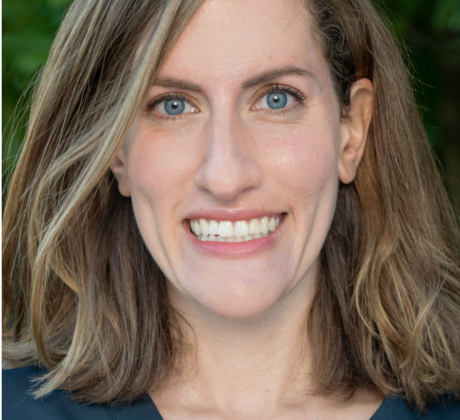Stephanie Ostroff is a speech-language pathologist and journalist. She enjoys blending knowledge from both fields to shine a light on innovators and changemakers in health care.


Emad Abdelnaby, MBA, MHCI ’23, aligns stakeholder goals to deliver medications to people in need
Emad Abdelnaby never expected to find himself in Tokyo, sitting across a table from Ezekiel Emanuel, MD, PhD, contrasting the Japanese and American health care systems.
But it was an intersection of experiences–Abdelnaby’s enrollment in Penn’s online Master of Health Care Innovation (MHCI) and a two-year assignment leading Johnson & Johnson’s Oncology Solid Tumor business in Japan–that paved the way for the encounter.
When a speaking engagement took Emanuel to Japan, Abdelnaby embraced the opportunity to reflect on juxtaposing health care models with the MHCI faculty director, who teaches a course about The American Health Care System. For Abdelnaby, the discussion underscored that despite vast differences in health policy and outcomes, the formula for solving health care’s most intractable challenges is the same in any country: break down silos and align goals.
This lesson ran through his MHCI experience and onward to other unprecedented conversations and opportunities to effect change—first in Tokyo, and now in the US. In January 2024, he began working for the biopharmaceutical company Ipsen as Senior Vice President of the Oncology Business Unit. In both roles, Abdelnaby’s mission is to get medication into the hands of patients who need it most, while driving forward business goals. To do that, he must secure buy-in from stakeholders across the health care ecosystem.
The MHCI gives you the structure–almost the architecture to come up with potential solutions.
“What was punctuated for me through the MHCI is that we tend to operate in silos within health care broadly. We really don’t have a very good holistic look at the health care system—how it ties together, where there are synergies and opportunities to collaborate,” says Abdelnaby, whose 25-year career in the pharmaceutical industry has taken him from assignments in the US to Casablanca, Tokyo, and now Cambridge, Massachusetts. “And so that was one of the biggest motivators of enrolling in the program. How do I first get a better understanding of the system at large? What’s working, what’s not working—and where, as an individual, can I become better at finding those synergies and those overlaps? And the program was phenomenal in opening my eyes in that regard.”
New Challenges and Opportunities in Tokyo
Abdelnaby moved from the Philadelphia area to Tokyo after one semester in the MHCI, becoming Vice President of Johnson & Johnson’s Oncology Solid Tumors Business Unit in Japan.
“If I had just gone overseas on my own, I’d have learned a lot. But those experiences coupled with the MHCI just gave me a whole different perspective,” he says. “The MHCI gives you the structure–almost the architecture to come up with potential solutions.”
Japan has one of the highest life expectancies in the world, and universal health care has been in place since 1961. Equity issues that pervade the American health care system are virtually nonexistent. Working within this new paradigm presented different challenges and opportunities for Abdelnaby.
“There are inefficiencies in how they care for older patients. In particular, the length-of-stay in hospitals is much longer than it is in the United States and Western Europe,” he says. “The MHCI allowed me to have conversations with stakeholders in Japan around those very specific things. To have, frankly, an educated conversation. And at times to see a lightbulb go off–so there is potentially an alignment of our goals.”
Discovering Stakeholders
Abdelnaby developed a project for his Pitching Innovation lab course, taught by Bob Tedeschi, MA, that addressed hospital length-of-stay in Japan and served as a springboard for action after graduation.
“A hospital system in Tokyo is interested in reducing its length-of-stay without disrupting the patient satisfaction that they deliver. Our goal as a pharmaceutical company is to drive improved outcomes, which by the way, can reduce hospital length-of-stay,” he says. “Is there an opportunity for us to test and pilot and generate data that shows there is an overlap here?”
Could pharma and a hospital collaborate to reduce hospital length-of-stay?
He decided to approach two Japanese health economists who had published a paper on hospital length-of-stay before and after the COVID-19 pandemic. Abdelnaby discovered that the researchers had previously collaborated with Johnson & Johnson and saw an opportunity for alignment.
“One conversation turned into another in terms of what a collaboration between pharma and a hospital could look like,” he says. “Could we prove that hospital length-of-stay could be reduced if the right pharmaceuticals, the right approach to health care were exercised?”
Abdelnaby returned to the US a few months into discussions. But he is hopeful that the dialogue he began in Japan will inspire future collaborations that benefit patients, physicians, and pharmaceuticals.
Collaborating to Treat Cancer
Now Abdelnaby must find synergy with stakeholders against a different backdrop–a health care system he views as more complex and fragmented than any other in the world. With his comprehensive understanding of American health care, he’s prepared to build valuable collaborations across the system. Even under extraordinary circumstances.
Shortly after Abdelnaby joined Ipsen, the company received FDA approval for an advanced pancreatic cancer treatment. Patients with metastatic pancreatic cancer face limited treatment options, and approval of a new drug is rare and reason for hope. But getting the treatment to those who need it most “is an incredibly broken, painful process. For doctors, for patients, for every stakeholder involved,” Abdelnaby says. “There has to be a better way.”
Solutions lie in understanding the needs and interests of those outside his own sphere, and identifying overlaps.
His solution lies in understanding the needs and interests of those outside his own sphere, and identifying overlaps. He feels equipped to do that as an MHCI graduate. “The language and the vernacular that I’m most accustomed to is that of pharmaceuticals, a sliver of the health care system,” he says. “But to understand the interests of a hospital system, the changing role of physicians and physician groups in the United States, the entire insurance landscape–this program illuminated that in an incredibly powerful way.”
Inviting Perspectives to the Table
Abdelnaby’s education came not only from MHCI coursework, but also from classmates who shed light on their own challenges and motivations.
“It is the first opportunity I’ve ever had in my career,” he says, “to sit across from somebody from each of these facets of the health care system and say, ‘Help me understand–what are you guys thinking? How does this work?’ Without the formality of I’m in my role in pharma, and you’re in your role in this part of the health care system.”
[The MHCI] is the first opportunity I’ve ever had in my career to sit across from somebody from each of these facets of the health care system and say, ‘Help me understand–what are you guys thinking? How does this work?’
The organic collaboration Abdelnaby took part in as a student now serves as a blueprint for success as he leads Ipsen’s US oncology business, engaging in conversations with other stakeholders. Making the leap from FDA approval of cancer treatment to patient access means aligning interests and demonstrating value to everyone.
“We can’t do this by ourselves. We need partners. We need doctors, we need patient advocacy groups, we need multiple stakeholders to get involved,” he says. “I think that’s really the only meaningful way to make a difference–to bring those various stakeholders to the table. And increasingly, I think that’s what we’re going to have to do in health care.”

